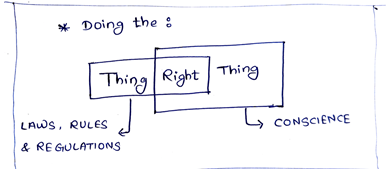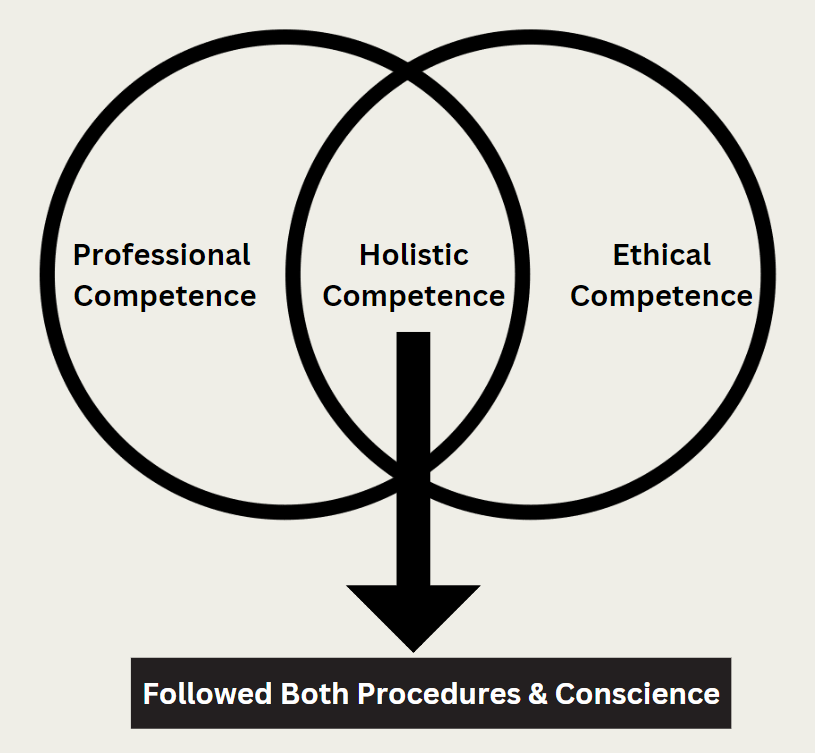- Courses
- GS Full Course 1 Year
- GS Full Course 2 Year
- GS Full Course 3 Year
- GS Full Course Till Selection
- Online Program
- GS Recorded Course
- NCERT (Recorded 500+ Hours)
- Polity Recorded Course
- Geography Recorded Course
- Economy Recorded Course
- AMAC Recorded Course
- Modern India, Post Independence & World History
- Environment Recoded Course
- Governance Recoded Course
- Science & Tech. Recoded Course
- International Relations and Internal Security Recorded Course
- Disaster Management Module Course
- Ethics Recoded Course
- Essay Recoded Course
- Current Affairs Recoded Course
- CSAT
- 5 LAYERED ARJUNA Mentorship
- Public Administration Optional
- ABOUT US
- OUR TOPPERS
- TEST SERIES
- FREE STUDY MATERIAL
- VIDEOS
- CONTACT US
Solved Ethics PYQs 2013
Ethics 2013 Detailed Solved Question
In the domain of public service, certain attributes are greatly esteemed. Building on the previously mentioned attributes, I would like to present two more qualities that I consider as important:
- Conscience:

- "Conscience is the inner voice that warns us somebody may be looking."
- It is the inner voice that guides individuals to act according to their values, beliefs, and principles.
- It guides the judgment of right and wrong and influences the behaviour of the person accordingly.
- It often involves a deep-seated sense of integrity, empathy, and responsibility towards upholding ethical standards and promoting the well-being of society.
- During the 1970s, Jaya Prakash Narayan called upon civil servants, police officers, and other authorities to uphold the rule of law and the principles of democracy, even if it meant disobeying unjust orders from the government. Such action requires the use of conscience.
- In Public service, Enforcement of law in letter and spirit is possible when public officials use their conscience. A civil servant would go for extra mile to help the last person in the row or Antyodaya (poorest of the poor) using his/her conscience.
- Also, the conscience helps in decision making especially while dealing with ethical dilemmas or conflicts of interest. It helps in prioritising the larger public good which brings trust, legitimacy, and ethical governance in public institutions. The act of Whistleblowing is based on judgement through conscience.
- It helps in bringing clarity about the self to bring harmony among thoughts, speech and action. Ashok Khemka’s conscience brought his thoughts against corruption into action & motivated him to expose corruption in various projects.
- Empathy:
- "Empathy is seeing with the eyes of another, listening with the ears of another, and feeling with the heart of another."
- Empathy is regarded as the ability to understand and experience the feelings and sufferings of another person.
- The person becomes able to put himself/herself in the shoes of others to understand the mental state of that person.
- Dr APJ Abdul Kalam refused the installation of broken glass on the walls to ensure the safety of a building saying that it would harm the birds.
- When empathy turns into an action, it makes a real contribution to society. Armstrong Pame (IAS Officer of Manipur cadre) built a 100 km road connecting Manipur to Nagaland and Assam by raising money through crowdfunding.
- Empathy in public service humanizes government interactions, making citizens feel valued and understood.
- Rapid response teams deployed during natural disasters provide not only material aid but also emotional support, showing citizens that their government cares about their well-being and understands their plight.
- Prasanth Nair (IAS, Kerala Cadre) started Operation Sulaimani, a free food program in Kozhikode, to enable those who cannot afford a meal to have food with dignity and to avoid food waste.
- Holistric Competence

- Holistic competence is the mix of Professional competence and Ethical competence.
- Professional Competence ensures the technical skills, knowledge, and expertise required to perform effectively in a specific field or profession, whereas Ethical competence brings the ability to make sound moral judgments, act with integrity, and uphold ethical principles in decision-making and behaviour.
- A policymaker is capable of multidimensionally analyzing the impact of a proposed industrial project, but ethical competence would guide his judgment to prioritize the interests of vulnerable sections and the environment over mere economic development.
- In public service, the application of love, empathy and compassion along with professional competence is essential to serve the public with full devotion.
- Holistic competence improves decision-making by allowing the person to think strategically. For instance, in the case of disaster management, an officer-in-charge can look for long-term solutions by building the capabilities of people, instead of simply giving a response to the disaster.
- The effectiveness of a person depends on both skills and values as skill might get him a job but ethical competence would help in the long-term sustenance. Mahatma Gandhi's leadership was not only based on his strategic skills but also on his commitment to truth and non-violence, which earned him enduring respect and admiration and brought.
- Industrialists like Ratan Tata have earned credibility, trust & reputation through such holistic competence.
- People work dedicatedly for such individuals or organisations for longer duration due to the same trust. Shivaji Maharaj, the Maratha warrior king, earned people's trust through his bravery and fairness. Therefore, many people dedicated their lives to serving Shivaji.
- Holistic competence is a balance of both bureaucratic and democratic attitudes. An effective administrator goes beyond mere oversight of school operations and attendance but implements initiatives to enhance enrollment and improve the quality of education.
- Transparency
- Transparency is not just about being open; it's about being open, honest and accountable in decision-making and communication.
- In the public service, accountability can be brought with increasing the transparency. The Right to Information (RTI) Act of 2005, empowers Indian citizens to seek information from public authorities regarding government decisions, actions, and expenditures. It allows citizens to scrutinize actions and hold public officials accountable for their decisions and use of resources.
- Transparency promotes integrity, ethical conduct & good governance, ultimately strengthening democratic principles and public trust in the effectiveness and legitimacy of public service.
- TN Seshan (Former Chief Election Commissioner) played a major role in introducing photo Voter ID cards for all eligible voters to eliminate bogus and duplicate votes and brought about transparency and fairness in the election process.
- In the absence of the lock of transparency, the door opens for corruption, social injustice and ineffective Public Policy.
- During a public health crisis such as a pandemic, transparent reporting of data on infection rates, testing, and hospitalizations enables policymakers, healthcare professionals, and the public to understand the severity of the situation, identify hotspots, and allocate resources effectively.
- In the corporates, disclosing financial performance figures which are truthful and accurate is essential from the perspective of all stakeholders.
- The voluntary public disclosure of information through the Jan Soochna Portal by the Rajasthan government shows the value of transparency in public service.

